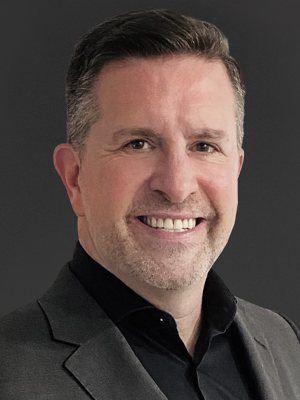Having watched famous families fight publicly over their corporate empires in recent years, it’s obvious that even the most prominent clans can come apart at the seams.

Many family office advisors have had their mettle tested by families who don’t get along. They find themselves charged with a sometimes Herculean task: holding the family together.
That calls for a special set of skills, says Moira Somers, a psychologist, family wealth consultant and executive coach based in Winnipeg.
“You can’t get by just by being technically proficient,” she says. “Advisors act as thinking partners.” They need to be able to navigate the estrangement of family members, a history of unwanted financial control by a matriarch or patriarch, or financial mismanagement, Somers says.
But, historically, smoothing ruffled feathers is not something that many advisors have been trained for. Yet, it’s something that families—especially dysfunctional ones—desperately need.
“It’s absolutely something that integrated advisors—the real experts—are taking on,” says Somers.
How to keep families together
Bill McLean, a partner in Richter’s family office practice in Toronto, believes that conflicts like those playing out in the media are often the result of top-driven management approaches that were popular decades ago.

“That was simply the way that generation managed,” he says. “That approach is gradually making way for a more inclusive approach that respects the fact that family members are individuals with their own perspectives and their own emotional feelings about things.”
Advisors who encourage families to take this path—while following it themselves—can earn more buy-in from families. Here are a few other ways advisors can guide clients through tough issues:
Be inclusive. “You want to create an environment where you are hearing from everybody who is involved in a particular challenge or issue,” says McLean. “And you want to deploy techniques that allow all of the participating family members to have consistent understanding.”
Often, family members have many different opinions about what they are trying to accomplish, so he suggests undertaking a discovery process. “Create a confidential, trusted environment for anybody who’s participating to share their perspective and ask their own questions when you’re working with them,” he says.
Address avoidance. “For most people, it’s ‘This is a yucky task and I don’t want to do it,’” says Somers of the many administrative and governance duties families often avoid. She suggests spurring them to action by asking questions such as, “’What part of this could I do for you? Can we put a date on it?’ Because once it’s on the calendar, most people will do it.”
McLean says, “Sometimes they might need the ‘stick’ of a third party who’s objective and can be very focused on helping them get to the outcome.”

Advisors should say, “Appreciating that there are challenges along the way, and given everyone has agreed this is the desired outcome, what are the things we need to do to make sure it happens?” he adds.
Educate about investing and develop financial literacy. This is an area where multi-family offices can play a crucial role, says Henry Korenblum, president and founder of Korenblum Wealth Inc. in Toronto. Often clients “don’t know what they don’t know,” he says, and they require financial guidance from their advisors to navigate the wealth industry. By ensuring that everyone is investment-savvy and on the same page, the chances of conflict diminish.
It’s also important to bring the next generation to the table as soon as possible to ensure smooth results. “We always encourage bringing the family together, so you’re hopefully developing the right financial literacy skills and promoting that successful stewardship of wealth for the next generation,” he says.
Introduce philanthropy. Giving back is something clients may not initially think of when they’ve had a liquidity event, says Korenblum. Advisors should bring it up regularly to help families move from a generous charitable gifting regime toward a philanthropic venture, he says, which can unite the family members in their mission. “That can be a discussion over a number of years,” he adds.
Help handle complex emotional situations. Often family members simply aren’t getting along, says McLean, and it’s incumbent on advisors to do a deeper dive to determine the root cause. “Do they lack clarity over the decision-making process? Do they lack education in a particular area, and it’s making it difficult for them to engage in dialogue about that?” he says. “When you peel it back and dig deeper, you really start to get to the meat of where the concerns might be.”
Somers agrees. “Some families are more emotionally complex than we might be ready for. That’s when you need to say, ‘How can we make sure that you’re getting the help you need?” Sometimes, that might involve bringing in outside aid, such as calling a family therapist or mediator, she says.
Tackle bad financial behaviour. Somers says she is working with a family whose members were significantly overspending and forcing the family to ask their accountant to repeatedly bail them out. The best way to handle such a situation is to draw the attention of the family and discuss the possibility that they could run out of money, she says.
“Can we get them some help to understand the nature of their overspending?” Offering the family a variety of options—such as referrals to psychologists or addictions-focused therapists—can help deal with the issue.
Regardless of what kind of issue a family office advisor is handling, the key is to be proactive, says McLean.
“More and more [families] are starting to say, ‘We want to jump ahead of this and we want to talk about things before they become challenging,’” he says. “Any advisor who holds a trusted relationship with the family wants that scenario as opposed to dealing with it when things have become untenable.”
Anna Sharratt is a business and health reporter and editor with more than 20 years of experience. Based in Toronto, she has written for Canadian Family Offices since 2021. A regular contributor to the Globe and Mail, she has written for Inc.com, Forbes, Business Insider, Canadian Business, MoneySense, the National Post, The Toronto Star and other publications. She is the former managing editor of smallbiz.ca, health editor of Chatelaine and senior health writer for the CBC.
The Canadian Family Offices newsletter comes out on Sundays and Wednesdays. If you are interested in stories about Canadian enterprising families, family offices and the professionals who work with them, but like your content aggregated, you can sign up for our free newsletter here.
Please visit here to see information about our standards of journalistic excellence.




